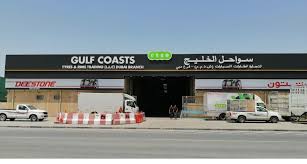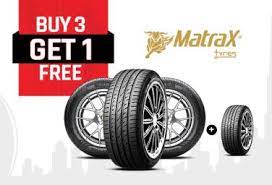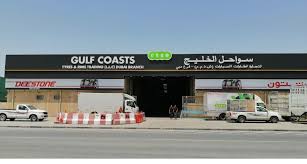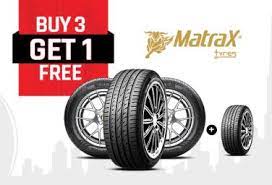Introduction
Understanding the value of a used car is essential whether you’re buying, selling, or trading in a vehicle. Accurate valuation helps ensure you make informed decisions, negotiate effectively, and avoid potential pitfalls. This guide provides a thorough overview of how to perform a used car valuation, covering key factors and methods for determining your car’s worth.
Factors Influencing Used Car Valuation
1. Make and Model
- Description: The brand and model of the car significantly affect its value. Popular and reputable brands often retain higher value.
- Examples: A luxury brand like BMW or a popular model like the Toyota Camry generally have higher resale values.
2. Year of Manufacture
- Description: Newer cars generally have higher values due to updated features, technology, and less wear and tear.
- Impact: A car that is a few years old will typically be worth more than an older model, assuming all other factors are equal.
3. Mileage
- Description: The number of miles a car has been driven impacts its value. Lower mileage usually translates to higher value.
- Guideline: Cars with lower mileage are often in better condition and have less wear, making them more valuable.
4. Condition of the Vehicle
- Description: The overall physical and mechanical condition of the car affects its value. This includes both exterior and interior condition.
- Considerations: Look for any dents, scratches, interior wear, and mechanical issues. Cars in excellent condition fetch a higher value.
5. Service History
- Description: A well-documented service history indicates regular maintenance and care, positively impacting the car’s value.
- Documentation: Service records, maintenance receipts, and repair history provide evidence of proper upkeep.
6. Vehicle History Report
- Description: A vehicle history report reveals past accidents, title issues, and ownership history, affecting the car’s value.
- Sources: Reports from services like Carfax or AutoCheck provide detailed information about the vehicle’s past.
7. Market Demand
- Description: The demand for specific makes and models in the current market can influence valuation.
- Trend: High demand for certain vehicles can increase their market value, while low demand may reduce it.
8. Additional Features and Upgrades
- Description: Added features or aftermarket upgrades can enhance the value of a used car.
- Examples: Features like leather seats, premium sound systems, or advanced safety technologies can increase a car’s value.
Methods for Valuing a Used Car
1. Online Valuation Tools
- Description: Online valuation tools provide estimates based on the car’s make, model, year, mileage, and condition.
- Popular Tools:
- Kelley Blue Book (KBB): Offers comprehensive value estimates based on various factors.
- Edmunds: Provides detailed valuations and pricing information.
- PitstopArabia: Localized valuation tools for the UAE market.
- How to Use: Enter the required details about your car to receive an estimated value.
2. Professional Appraisal
- Description: Hiring a professional appraiser offers a detailed and accurate valuation based on a thorough inspection.
- Process: An appraiser evaluates the car’s condition, history, and market trends to provide a precise value.
3. Dealership Offers
- Description: Dealerships often provide trade-in offers based on their assessment of the car’s value.
- How to Approach: Obtain offers from multiple dealerships to get a comparative understanding of your car’s value.
4. Comparative Market Analysis
- Description: Analyze the prices of similar cars in the market to gauge your car’s value.
- Where to Check: Browse online marketplaces, classified ads, and dealer listings for comparable vehicles.
5. Manual Calculation
- Description: Calculate the value by considering depreciation rates and the car’s condition.
- Factors to Consider: Use industry-standard depreciation formulas and factor in your vehicle’s specific condition and mileage.
Common FAQs About Used Car Valuation
Q1: How often should I get a used car valued?
It’s advisable to get a used car valued when you’re planning to buy, sell, or trade it in. Regular valuations help you stay informed about its market worth.
Q2: Can I trust online valuation tools?
Online valuation tools provide estimates based on available data and market trends. While they are generally reliable, combining them with other methods, like professional appraisals, offers a more accurate assessment.
Q3: What should I do if my car’s value is lower than expected?
If your car’s value is lower than expected, consider addressing any issues that might be affecting its value, such as maintenance or repairs. Additionally, reviewing similar vehicles’ prices can offer insights into market trends.
Q4: How do upgrades affect my car’s value?
Upgrades and additional features can positively impact your car’s value, but their effect varies based on their relevance and appeal to buyers. Ensure that upgrades are well-documented and in good condition.
Q5: Is it worth getting a professional appraisal?
A professional appraisal is worth considering if you want a precise and detailed valuation, especially for high-value or unique vehicles. It provides an expert assessment beyond online estimates.
Conclusion
Accurate used car valuation is crucial for making informed decisions whether buying, selling, or trading a vehicle. By considering factors such as make, model, mileage, condition, and using various valuation methods, you can determine a fair market value for your car. Utilize online tools, professional appraisers, and comparative analysis to get the most accurate estimate.
For further assistance with car valuation and related services, visit PitstopArabia.
For More Blogs Please Visit: flixdaily.















